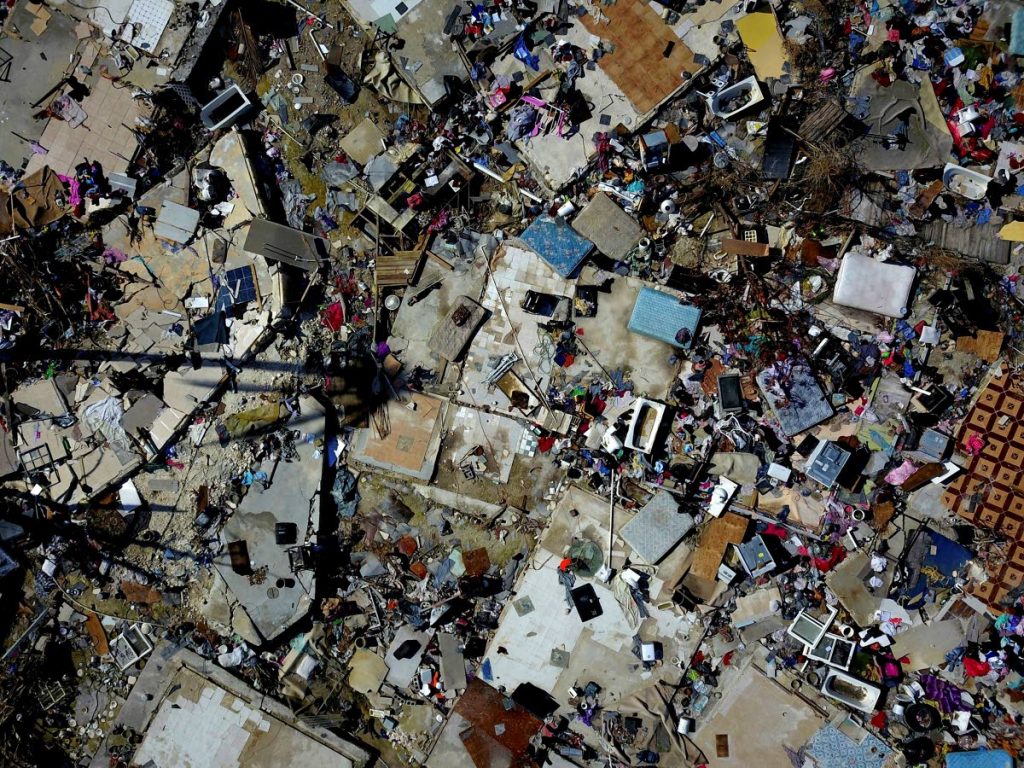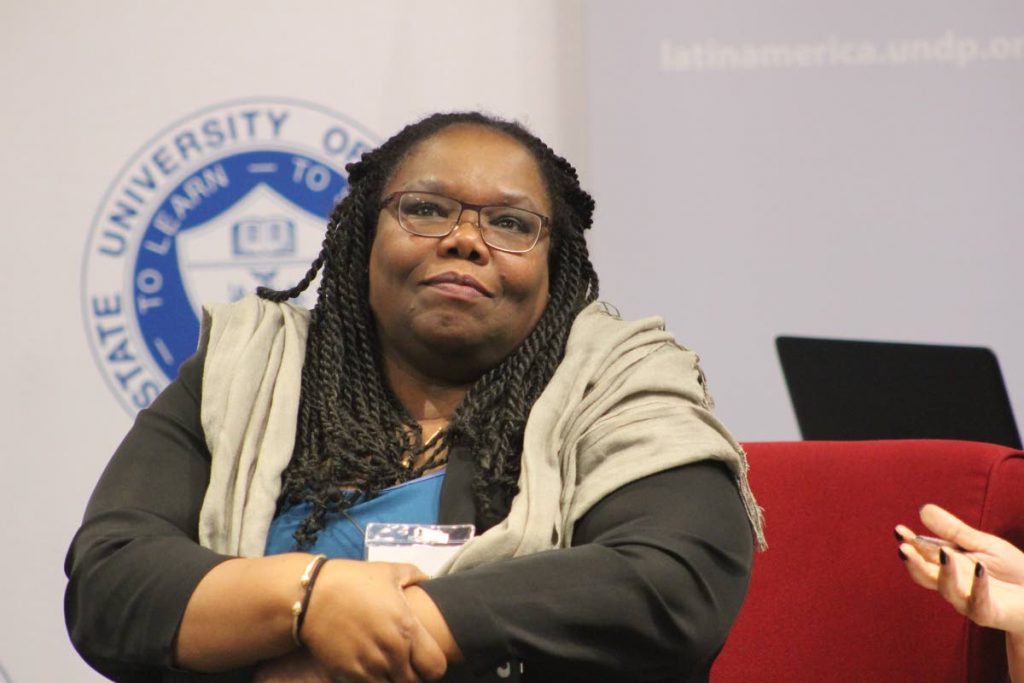Keeping the Caribbean connection

Sustainable development is within the Caribbean’s reach, but the approach needs to start from the bottom up. And a big part of that, says Diane Quarless, director of the United Nations Economic Commission for Latin America and the Caribbean, is maintaining the sense of community that defines the region.
“We cannot afford to lose the sense of community. (It) gives a sense of belonging so you care (about your neighbours) in a different way. And we need to bring that level of caring to policymaking, among decision-makers.”
Sustainable development, she said, has to be participatory. “It has to start at the bottom but it has to reach to the top. The top down does not work.”

PHOTO BY CARLA BRIDGLAL
Quarless, a Jamaican based in Port of Spain, spoke to Business Day in New York at an event hosted by The University of the West Indies in partnership with the State University of New York on global partnerships for climate action.
A big part of the strategy is engaging key stakeholders, and communication is fundamental, including collaboration with the media, social media engagement and more committed and better resourced community leaders to execute a more structured public awareness strategy.
“There must be a greater level of collaboration between the thinkers, the tellers and the doers.”
The really tricky part, though, is engaging the politicians on policy.
“That question is very broad because when we talk about sustainable development, it is on many different fronts. You have to start with the social agenda and that is huge.”
First up is poverty, which in itself has different dynamics, including intergenerational poverty and the feminisation of poverty. “The gender agenda needs a greater level of policy focus. You can’t talk about social development without bringing to the centre the gender component and our policymakers aren’t doing enough of that.”
The Caribbean has also led the call internationally for awareness of non-communicable “lifestyle” diseases (NCDs) which affect a significant part of its population. “It’s not just about health. Health impacts the labour market, and impacts the capacity of government to be self-sustaining.
"Ageing, for example, is an area where we have been putting a lot of emphasis to our governments and asking them to assume a greater level of priority towards the broader sustainable development platform because our populations are getting older not just because of the natural ageing process but because of attrition and migration of the younger ones. So, it’s only granny left at home with the very younger ones who eventually also leave.”
The Caribbean, then, will be facing a crisis of social welfare systems that are inadequate to meet the needs of the population. “Our governments need to plan for the day when they can deal with that.”
Sustainable development also needs to be able to continue beyond election cycles. “ECLAC is designing policy platforms for 2030 and beyond. No single government can hope to be in power all that time so what we are trying to advocate is we take these strategies to parliament and have them adopted by both sides.” This is the model in Jamaica, she said, and one ECLAC is trying to promote throughout the region.
On the issue of climate, Quarless noted that the Caribbean has an economic, social and environmental vulnerability linked to its size – which affects its capacity to retain talent.
“Most of our highly skilled are not in the region. I mean we get their help through the diaspora but the fact is we do not have industries or job opportunities to make our people want to stay. We invest in training them and then they find greener pastures. This is an issue based on size because we are not able to absorb them nationally. That’s an economic issue. It’s also a skills capacity issue.”
Environmentally, when a hurricane hits the United States, for example, it might only affect a few states. In the Caribbean, it affects the whole island. “I remember when Hurricane Gilbert hit Jamaica in 1988, it hit one end, moved through the middle and came out the other end. It became a meter for life before Gilbert and then after.”
This is why the region has to be resilient.
“It’s about creating opportunity. And you do that by diversifying.”
Technology has helped to create those opportunities. “We are small. You don’t want a large-scale industry, you want niches. You have to be strategic and stay the course. We are sometimes too scattered (regarding policy), focused on short-term gains and not enough on long term vision.”
But if the region is really to embrace a sense of community, it needs to get serious about regional integration — starting with the Caricom Single Market Economy (CSME).
“We need to fire up the culture of the Caribbean and make everyone in the region own it as one so we break down the barriers in the countries.”
She recalled being detained at an immigration window at the Piarco International Airport for 45 minutes when she presented the officer with her Jamaican passport because she had forgotten to travel with her diplomatic passport.
“They stamped me three months in the country even though I had lived there for four years running one of the UN offices. Why is that? A Jamaican or Guyanese shows up at the window in Trinidad or Barbados and it’s not like 'howdy neighbour'! They’re going to get a rough time in the airport because our people do not recognise each other as brothers and sisters.
“CSME is not going to work if (countries behave) like every man for himself. We need to understand that we are a community. We all belong to each other, we all support each other. We are as strong as the weakest link. We all have to move together or were not going to move at all.”
* Carla Bridglal is Newsday’s associate business editor and a 2019 Dag Hammarskjold Journalism Fellow. For the next ten weeks, she will be reporting from the United Nations General Assembly in New York.


Comments
"Keeping the Caribbean connection"